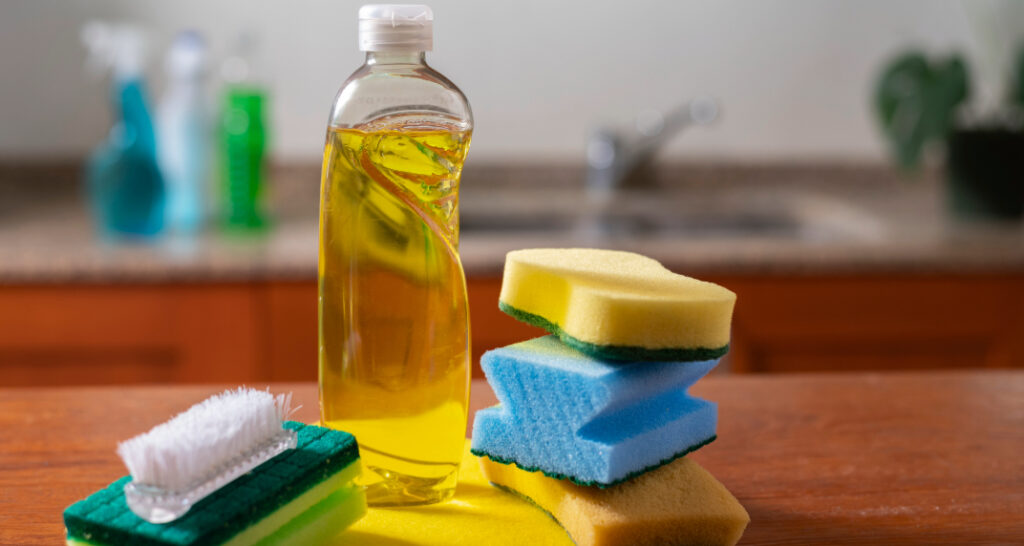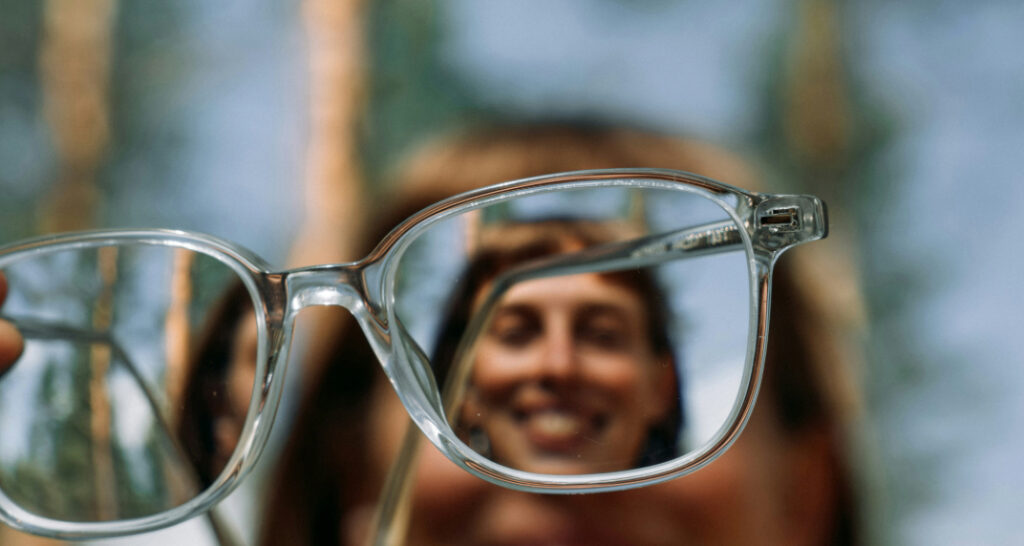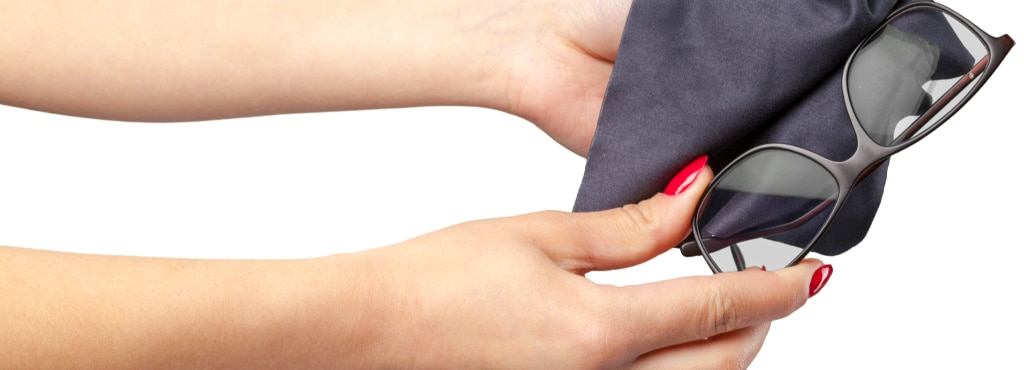Scratched lenses can be frustrating and uncomfortable, blurring your vision and distracting from your day. However, this doesn’t necessarily mean you have to replace your current pair of glasses or sunglasses right away, there are a few tricks you can try first to improve the clarity of your lenses. While some scratches can’t be completely erased, we’ve gathered the smartest, safest ways to reduce their impact, plus a few things you should absolutely avoid.

Something to keep in mind…
Let’s be clear: deep scratches or scrapes often can’t be fully repaired, especially on plastic lenses with coatings like anti-glare or blue-light filters which can be worn down over time. If your glasses have several scratches or are causing you visual discomfort or headaches, it’s probably a sign you need to replace the lenses. But minor scratches and surface scuffs? You might have some luck minimising their appearance.

What causes scratches on glasses in the first place?
Scratches on glasses often happen from everyday wear and tear, like wiping lenses with rough materials, resting them face down, or dropping them on hard surfaces. Tiny particles of dust or debris can also cause damage if rubbed into the lenses during cleaning. Even using the wrong cleaning products can wear down protective coatings over time. That’s why it’s so important to take good care of your glasses.


How to correctly clean glasses and avoid scratches?
To clean your glasses or sunglasses effectively, use the microfibre cloth that came with them along with a lens-safe cleaning spray. Apply a small amount of cleaner to both sides of the lenses, then gently wipe in circular motions. Pay special attention to the corners where dust and grime tend to build up. Once dry, your lenses should be scratch-free, crystal clear and ready to wear!
Top tip: When you’re travelling or on the go, it’s a good idea to keep a glasses cleaning kit with you. A small bottle of lens cleaner and a soft cleaning cloth are perfect for quick touch-ups. Alternatively, pre-moistened lens wipes are a handy option, they’re compact, convenient and ready to use whenever you need them.


Can I use washing-up liquid to clean my glasses?
Mild washing-up liquid (or dish soap) and lukewarm water is a reliable home remedy for cleaning your prescription glasses. It can help to fix scratches by eliminating any debris that might lead to damage on the lenses.
First, clean and dry your hands thoroughly to avoid transferring any oil or dirt. Rinse your glasses under cool, running water, making sure it’s not too hot as this can damage any lens coatings. Squirt some washing-up liquid on each lens and gently rub both the lenses and frame with your fingers, making sure to clean the bridge and temples where sweat and makeup often rubs off. Rinse well to remove any traces of soap. Finally, dry your glasses with a clean, lint-free towel or soft cloth. Observe the glasses in the light to check for any remaining smudges or residue.
Just remember, when buffing or cleaning your glasses, you don’t want to overdo it and cause irreparable damage to your lenses. Make sure you take extra care and speak to an optician or eye care professional if you’re having any trouble.


What to avoid:
- Baking soda: While baking soda is often suggested as a home remedy for scratched lenses, it’s best avoided on glasses with protective coatings and sun tints. Its abrasive texture can warp your lenses and wear down anti-reflective or blue light filters, making the damage worse over time and potentially obscuring your vision. For coated lenses, gentler cleaning methods or professional help are safer options.
- Toothpaste: It may seem like a quick fix for scratched lenses, but it’s risky. Many formulas contain mild abrasives or whitening agents that can strip protective coatings and leave lenses even more damaged. Even “non-abrasive” types can cause fine scratches, so it’s best not to use toothpaste. We suggest steer clear and stick to lens-safe cleaning options.
- Window cleaner or household detergents: These can also damage lens coatings.
- Paper towels or tissues: They seem soft, but they can scratch your lenses further.
- DIY hacks for scratch removal with harsh abrasives or waxes: While things like glass-etching cream and car wax may offer short-term results, they often cause long-term damage.


How to prevent scratched lenses in the future?
- Always store your glasses in a protective case and if you have a flexible rather than a hard case, make sure you don’t bury them right at the bottom of your bag where they are at risk of damage.
- Use both hands when removing them to avoid smudges and twisting the frame.
- Clean with a microfiber cloth and lens-specific cleaner only.
- Consider getting new lenses with an anti-scratch coating, which will act as protection against minor abrasions.
- Upgrade to KODAK lens options which are low-maintenance and highly durable, thanks to an anti-static, water-repellent and scratch-resistant coating.
- Use contact lenses as an alternative during intense exercise to prevent breakage. If you’re active on a regular basis, it’s also worth investing in a new pair of sports glasses from brands like Oakley which are built to last and make a reliable companion during your favourite sporting activities.

Final thoughts
Scratched lenses don’t always mean the end of your glasses’ life. With gentle care, you might be able to reduce their appearance. But prevention is always better than a cure, investing in quality lenses and committing to proper care will keep your vision clear and your style sharp.
Seeking fresh frames? At Glasses Direct, we have a huge range of styles to choose from. Plus, all our affordable lens packages come with a reliable scratch-resistant coating for stylish, affordable solutions that keep your eyes and your eyewear in top shape. Find fashionable and practical new glasses online now.




